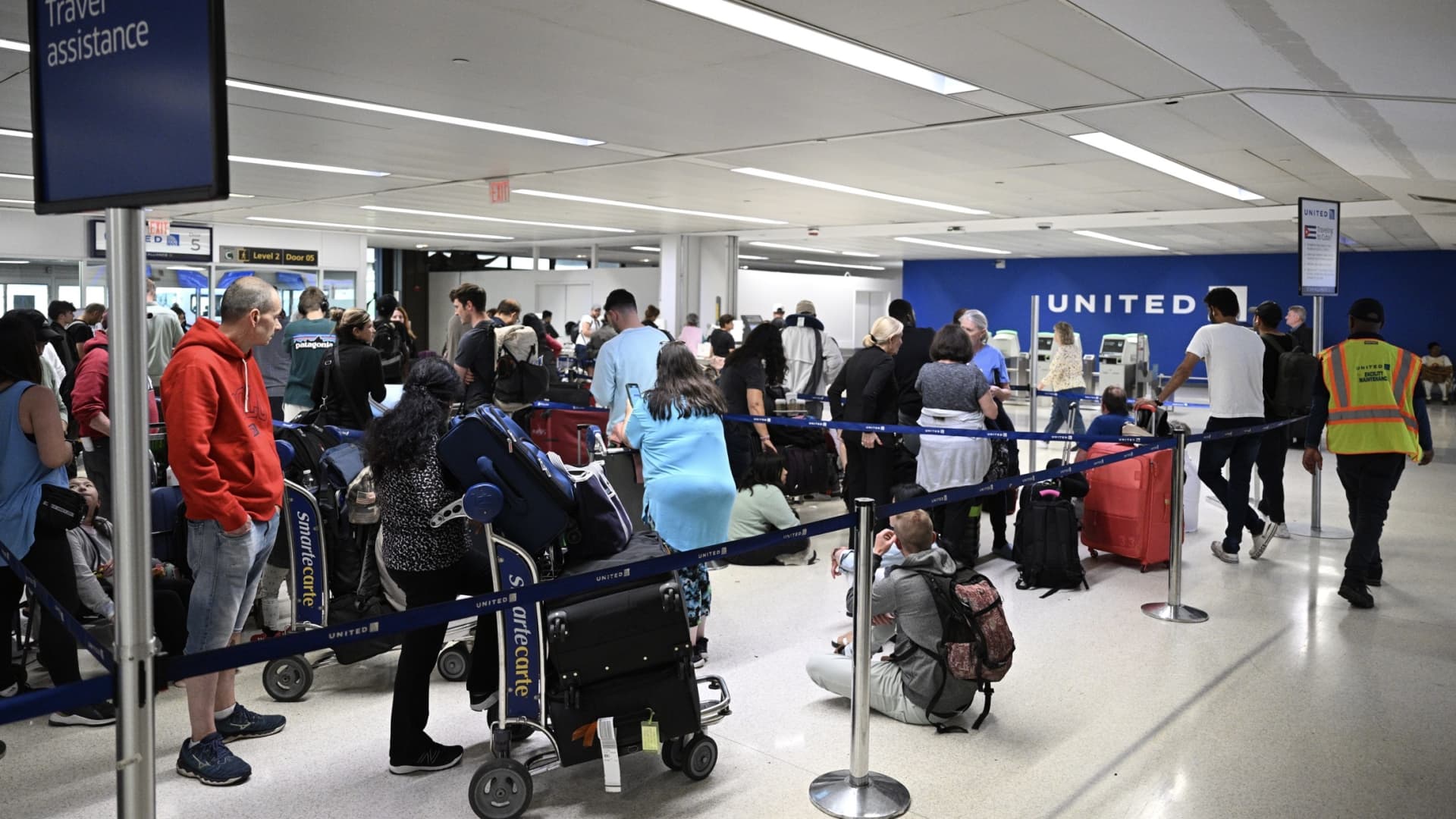Flight disruptions escalated on Tuesday due to severe storms and staffing issues, creating a turbulent start to the summer.
According to FlightAware data, over 7,700 U.S. flights experienced delays on Tuesday, while nearly 2,200 flights were canceled. These disruptions continued from the weekend when thunderstorms wreaked havoc on thousands of flights. This is in addition to the more than 8,800 delays and close to 2,250 cancellations on Monday.
The Federal Aviation Administration (FAA) temporarily halted flights bound for New York’s LaGuardia Airport, John F. Kennedy International Airport, and Newark Liberty International Airport in New Jersey. Delays at these airports averaged three hours or longer as thunderstorms obstructed arrival and departure routes.
These disruptions raise concerns as the busy Fourth of July holiday travel period approaches, with millions of people expected to fly. The Transportation Security Administration anticipates screening a higher number of travelers compared to 2019, before the pandemic, which will intensify competition for available seats.
In response to widespread flight disruptions last year, the Biden administration has pressured airlines to improve their operations by reducing overambitious schedules. However, the industry struggled to recover this past weekend due to persistent thunderstorms.
Unlike other major weather events such as winter storms or hurricanes, thunderstorms present challenges for airlines because they can form with little warning. Rolling delays may result in crews exceeding federally mandated workday limits, further worsening disruptions.
FlightAware data shows that approximately 30,000 flights have arrived late since Saturday, with cancellation rates from Saturday to Monday more than three times the yearly average.
Some airline executives have attributed the disruptions to shortages of air traffic controllers.
The CEO of United Airlines, Scott Kirby, expressed disappointment in the FAA’s handling of the situation. Kirby stated that during Saturday’s storms, the FAA reduced arrival rates by 40% and departures by 75% at Newark Liberty International Airport, one of United Airlines’ major hubs. Kirby believes this led to massive delays, cancellations, diversions, positioning issues with crews and aircraft, and exacerbated the situation with FAA staffing shortages on Sunday evening.
In response, an FAA spokesman expressed willingness to collaborate with anyone serious about finding solutions to the problem.
The staffing challenges faced by the FAA are not new. The hiring and training of new air traffic controllers were disrupted by the Covid-19 pandemic, and the agency is now attempting to catch up.
A report from the Department of Transportation’s Office of Inspector General, released last week, highlighted the risks posed by air traffic control staffing shortages. To alleviate congestion at busy airports in New York, the FAA and certain airlines agreed to reduce flights in March due to staffing issues.
However, these problems persist as airlines prepare crews and schedules for a busy summer season driven by sustained travel demand.
The disruptions have also frustrated flight crews who faced extended waiting times for reassignments.
Inflight crew scheduling hold times exceeded three hours, according to a memo from the Association of Flight Attendants-CWA, which represents flight attendants at United Airlines and other carriers. The union acknowledged the need for action to address these adverse situations resulting from irregular operations.
In response, United Airlines stated that it is utilizing all available resources to address the call volume backlog, including increasing staffing in crew scheduling and implementing mandatory overtime for the scheduling team.
The airline is offering triple pay to flight attendants who pick up trips between June 27 and July 6, as communicated by their union.
JetBlue Airways, based in New York, also experienced significant flight delays in recent days and acknowledged the need for improvement in handling disruptions. In a note to crew members, Don Uselmann, Vice President of Inflight Experience at JetBlue, mentioned the airline’s potential for more efficient updates on crew reporting times and hotel assignments to minimize waiting times.
“Summer peak is officially underway, and extreme weather events, ATC staffing constraints, and resulting delays will test all airlines,” Uselmann stated in the note. “This weekend’s irregular operation won’t be our last, but the combination of events put acute pressure on the operation and made it more challenging than most.”

